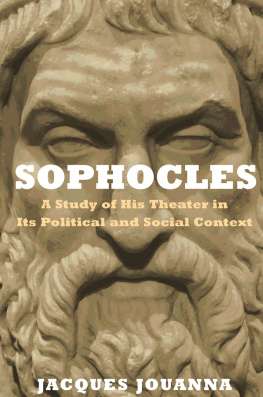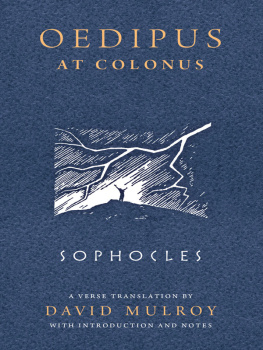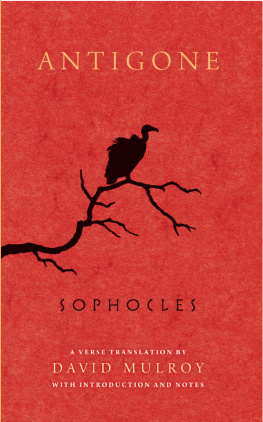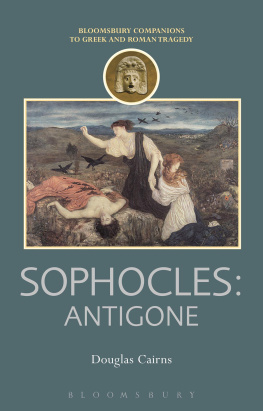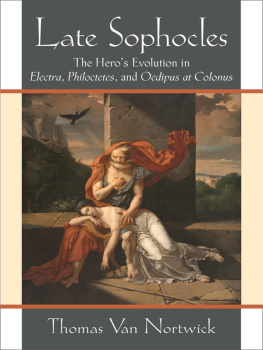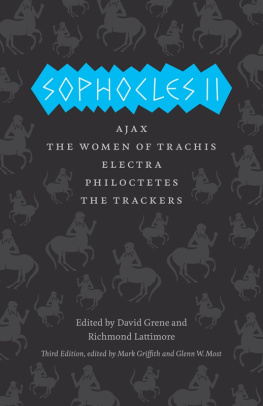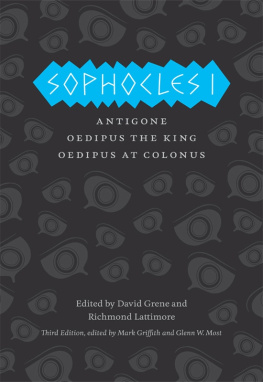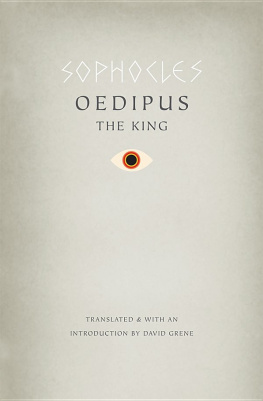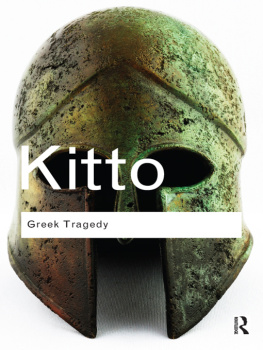SOPHOCLES
Sophocles

A STUDY OF HIS THEATER IN ITS
POLITICAL AND SOCIAL CONTEXT

Jacques Jouanna
Translated by Steven Rendall
PRINCETON UNIVERSITY PRESS
PRINCETON AND OXFORD
Sophocle by Jacques Jouanna World Copyright Librairie Arthme Fayard 2008
Copyright 2018 by Princeton University Press
Requests for permission to reproduce material from this work should be sent to
Permissions, Princeton University Press
Published by Princeton University Press,
41 William Street, Princeton, New Jersey 08540
In the United Kingdom: Princeton University Press,
6 Oxford Street, Woodstock, Oxfordshire OX20 1TR
press.princeton.edu
Jacket image: Marble head from a statue of the dramatist Sophocles, mounted on a modern herm. The Trustees of the British Museum
All Rights Reserved
Library of Congress Cataloging-in-Publication Data
Names: Jouanna, Jacques, author. | Rendall, Steven, translator.
Title: Sophocles: a study of his theater in its political and social context/ Jacques Jouanna;
translated by Steven Rendall.
Other titles: Sophocle. English
Description: Princeton; Oxford: Princeton University Press, 2018. | Includes bibliographical
references and index.
Identifiers: LCCN 2017036423 | ISBN 9780691172071 (alk. paper)
Subjects: LCSH: SophoclesCriticism and interpretation. | Greek dramaHistory and criticism.
Classification: LCC PA4417.J6913 2018 | DDC 882/.01dc23 LC record available at https://lccn.loc.gov/2017036423
British Library Cataloging-in-Publication Data is available
10 9 8 7 6 5 4 3 2 1
(Pbk.) 10 9 8 7 6 5 4 3 2 1
eISBN: 978-0-691-24040-4
R0
TO HEINRICH VON STADEN,
IN MEMORY
OF PRINCETON
Why am I concerned with Sophocles?
Because there are new things that are very old
and old things that are very new.
JEAN COCTEAU
PART I

Sophocles the Athenian
Prelude

A SNAPSHOT OF SOPHOCLES
Finding the man behind the writer is a difficult, even impossible enterprise, especially when a man of the theater is concerned. This is even more true for an ancient author than for a modern one, because biographical information about the ancients seems questionable from the outset, especially if we dont take the trouble to look into its origin and assess its relative value. However, Sophocles is in this regard an exception among ancient authors, because we have a contemporary witnesss report concerning him. It is a snapshot taken during a reception at which Sophocles, who had stopped off at the island of Chios, was the guest star. The report was composed by Ion of Chios, a writer born on the island who was younger than Sophocles, but like him a man of the theater. He had had the idea, which was very original at the time, of keeping a diary on the celebrities who passed through his homeland. Here is his account, as preserved in the work of a more recent author:
I met the poet Sophocles on Chios when he was sailing to Lesbos as a strategos; he is a man who gets happy after having a few drinks and who is very astute. Hermesileos, his host and the Athenians proxenos, seated him at his table. The boy assigned to pour the wine stood near the fire; he was clearly [red]. Sophocles spoke to him: Do you want me to drink under agreeable conditions? The boy said he did. Then move slowly as you give me my goblet and take it away from me. When the boy blushed even more furiously, Sophocles said to his neighbor, who was lying on the same couch as he: How beautiful it is, the verse composed by Phrynicus where he says: The light of love shines in scarlet cheeks. To which his neighbor, who was a grammar teacher from Eretria, replied: Sophocles, I have no doubt that you are an expert in poetry. However, Phrynicus did not express himself well when he described the handsome boys cheeks as scarlet. For if a painter chose the color scarlet to represent this boys cheeks, he would lose his beauty. When he heard these words spoken by the man from Eretria, Sophocles burst into laughter: So, stranger, you are pleased by neither this verse of Simonides, which the Greeks nonetheless find so eloquent: the young girl making her voice heard from scarlet lips, nor by the poet who speaks of Apollo with golden locks; for if a painter painted the gods hair in gold and not in black, the picture would be mediocre; nor by the poet who says Rosy-fingered Dawn; for if we took the color rose to paint her fingers, one would be representing a dyers fingers, and not those of a pretty woman. This reply aroused laughter. And when the man from Eretria was stunned by this barrage, Sophocles resumed his conversation with the boy. As the boy tried to use his finger to remove a straw from the goblet, Sophocles asked whether he saw the straw clearly. The boy declared that he did. Then blow it away, so as not to wet your finger. And when the boy tried to do so, Sophocles brought the goblet close to his own mouth, so that his head was closer to the boys. And when he was very close to him, he seized him with his arm and gave him a kiss. Everyone present applauded, laughing and shouting to salute the cleverness with which Sophocles had taken the boy by surprise. Gentlemen, Sophocles declared, I have been training myself in strategy since Pericles claimed that although I knew poetry, I was ignorant of strategy. But didnt my stratagem succeed? So there is one example among many others of the shrewdness of Sophocles words and his acts when he took part in banquets.
Here we are in the middle of the fifth century BCE, or more precisely, in the year 441/440. Sophocles was already over fifty years old. He had long been famous as a tragic poet and was occupying for the first time the political office of strategos along with Pericles. In this lively narrative in which Sophocles is sketched by a talented witness, we will point out, for the moment, only the overall impression.
It is a deliciously comic scene that shows two facets of Sophocles character: in his conversation with the grammar teacher, it is the cultivated and brilliant poet who ridicules his interlocutors professorial dogmatism and discreetly asserts the autonomy of poetry in contrast to painting: poetic technique must not be confused with pictorial technique! In the conversation between Sophocles and the young cupbearer, it is the strategist of love that we see at work. Here Sophocles, who was said to like boys, provides an example of his tactical skill by gradually drawing the victim into his trap. And there, he pretends to confuse military strategy and amorous strategy!
In the end, what unites these two facets of Sophocles character is his power of seduction: by means of his great intelligence, full of irony and humor, he is able to win applause by mocking overly serious minds: that of the anonymous grammar teacher, but also that of Pericles, the master strategist. Sophocles, who was known for his ability to depict on the stage the misfortunes of the great, also knew how to make people smile in his private life, even when he was occupying a political office.

